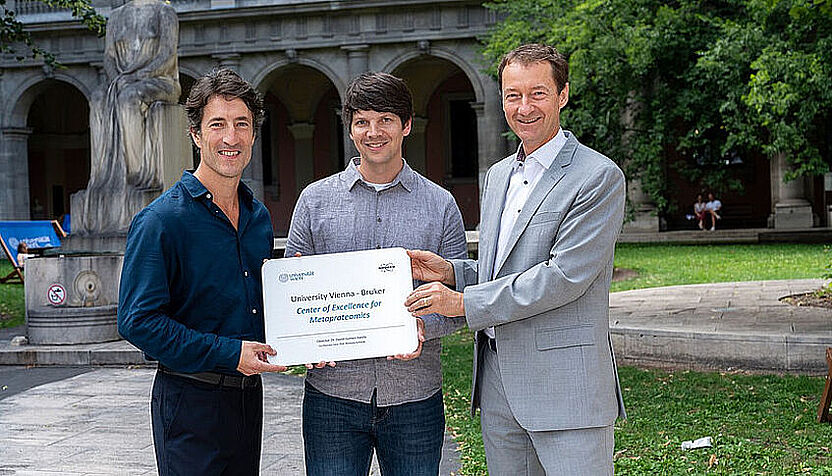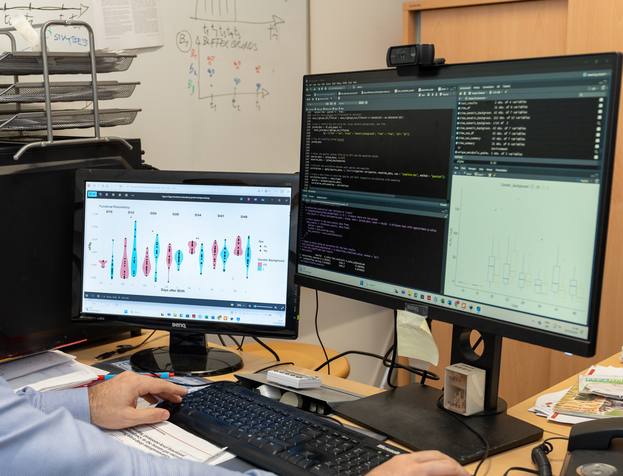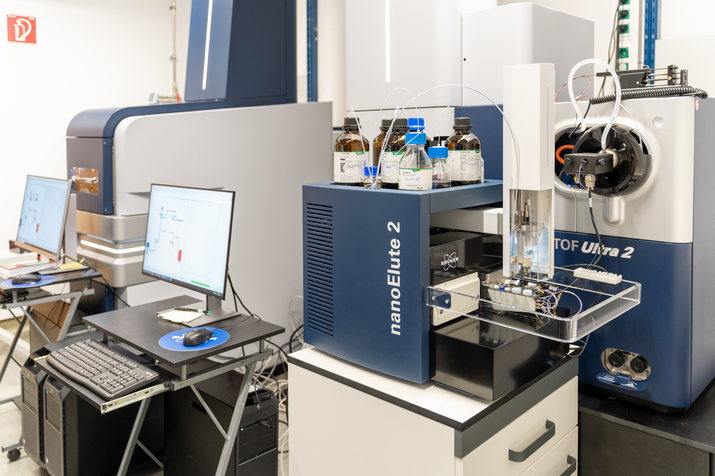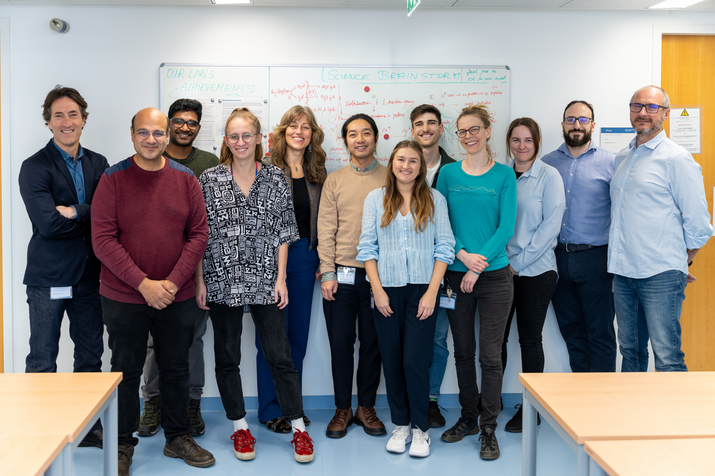Bruker Daltonics Center of Excellence for Metaproteomics
The University of Vienna opens the Center of Excellence for Metaproteomics in collaboration with Bruker
New cooperation combines cutting-edge research with state-of-the-art technology.
The new Center of Excellence for Metaproteomics at the University of Vienna will focus on microbiome research using high-resolution protein-based methods. The strategic partnership between the University of Vienna and Bruker combines cutting-edge research with state-of-the-art technology. The new Center of Excellence for Metaproteomics will be headed by biochemist David Gómez-Varela from the University of Vienna.
The microbiome plays a crucial role in diverse ecosystems including human health and disease. David Gómez-Varela and Manuela Schmidt from the Department of Pharmaceutical Sciences at the University of Vienna have developed innovative methods in the field of metaproteomics. Metaproteomics includes experimental approaches for the investigation of proteins (the entire set of proteins is called the proteome) of microbial communities in living organisms and environmental sources. This facilitates the analysis of changes in the proteome of both microorganisms and their host. For example, metaproteomics can be used to study the microbiome of the human gut and, in parallel, the human gut cells themselves. The unique advantage of this post-genomic method is that it enables scientists not only to understand which microorganisms are present in a sample, but also how they work and interact with each other. Consequently, deeper insights into the microbiome and its functions can be gained promising significant advances in the fields of healthy ageing, personalized medicine, and disease prevention.
As a manufacturer of scientific instruments for molecular and material-based research, Bruker is an important strategic partner. The company has established cooperations with top research institutions in so-called Centers of Excellence.
In the new Center of Excellence for Metaproteomics, scientists from the University of Vienna and experts from Bruker will work side by side to develop highly sensitive methods for studying the microbiome.
"We welcome this new collaboration, in which the University of Vienna and the manufacturer Bruker combine cutting-edge research with state-of-the-art technology. The ultimate goal is to generate new knowledge about the microbiome to improve human health," says Ronald Maier, Vice Rector for Digitalization and Knowledge Transfer at the University of Vienna.
"This partnership with Bruker is a great opportunity. Bruker's leading position in developing cutting-edge technologies to decode proteins, i.e. the functional language of all living organisms, will significantly advance our research. Together, we aim to use metaproteomics to diagnose and predict diseases, improve the efficacy of therapies, and develop new biotechnological tools for biomedical applications," says David Gómez-Varela, Director of the newly established Center of Excellence for Metaproteomics.
"We are delighted to establish a long-term collaboration with the University of Vienna, and, in particular, with David Gómez-Varela and Manuela Schmidt, to realize our shared vision of using metaproteomics to understand biology, improve health, and treat disease," says Rohan Thakur, President of the Life Science Mass Spectrometry Division at Bruker. "Together, this partnership will foster a dynamic and collaborative environment for biomedical research in Vienna."
Bruker Corporation – Leader of the Post-Genomic Era
Bruker is enabling scientists and engineers to make breakthrough post-genomic discoveries and develop new applications that improve the quality of human life. Bruker’s high performance scientific instruments and high value analytical and diagnostic solutions enable scientists to explore life and materials at molecular, cellular, and microscopic levels. In close cooperation with our customers, Bruker is enabling innovation, improved productivity, and customer success in post-genomic life science molecular and cell biology research, in applied and biopharma applications, in microscopy and nanoanalysis, as well as in industrial and cleantech research, and next-gen semiconductor metrology in support of AI. Bruker offers differentiated, high-value life science and diagnostics systems and solutions in preclinical imaging, clinical phenomics research, proteomics and multiomics, spatial and single-cell biology, functional structural and condensate biology, as well as in clinical microbiology and molecular diagnostics. For more information, please visit www.bruker.com.
Bruker Corporation – Leader of the Post-Genomic Era (Nasdaq: BRKR)
University of Vienna
The University of Vienna is one of the oldest and largest universities in Europe: About 10,700 employees, 7,500 of whom are academic employees, work at 20 faculties and centres.
This makes the University of Vienna Austria’s largest research and education institution: About 85,200 national and international students are currently enrolled at the University of Vienna. With 187 degree programmes, the University offers the most diverse range of studies in Austria. The University of Vienna is also a major provider of continuing education and training in Austria. Founded in 1365, the Alma Mater Rudolphina Vindobonensis celebrated its 650th anniversary in 2015 with a varied annual programme. In autumn of 2022, the University of Vienna congratulated Anton Zeilinger on winning the 2022 Nobel Prize in Physics.. In 2023, the University of Vienna was able to significantly improve in all three higher education rankings (THE, QS, Shanghai) assessing entire universities, which are, due to their international visibility, the most important ones.



